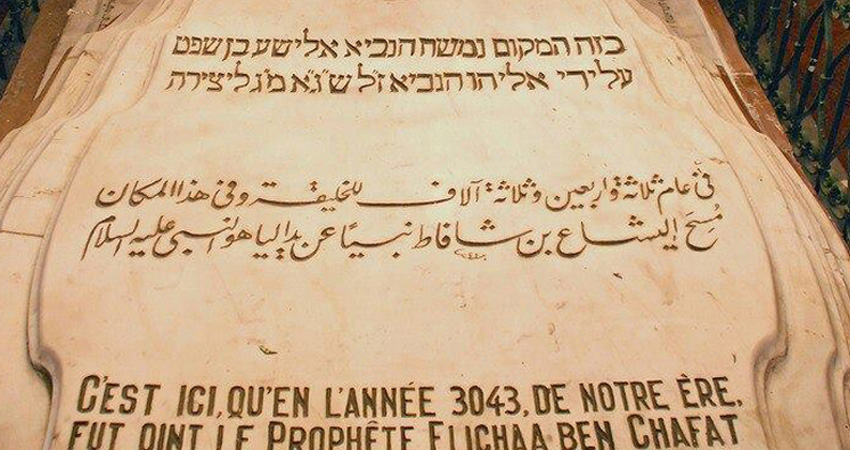Syria’s rich tapestry of cultural heritage has been ripped to shreds in the severe circumstances during the years of conflict, as several cultural, historical and archaeological sites in Syria were damaged or being looted including the ancient Eliyahu Hanavi Synagogue in Jobar. According to eyewitnesses interviewed by STJ, a lot of the Synagogue’s antiques and artefacts were looted by both, regime forces, who entered Jobar in 2012 and armed opposition groups who seized control over the neighborhood in 2013 and started excavations under the Synagogue with the aim to find buried treasures or any valuable archaeological pieces.[1]
Eyewitnesses, who were present in Jobar during the period of the armed groups control till 2018, reported that large sections of the Synagogue devastated during exchanges of fire or shelling by parties to conflict. Therefore, much of its collection moved to another place for safekeeping, under the guidance of a committee composed of a member of the former local council of Jobar and commanders of al-Rahman Legion (Faylaq al-Rahman).[2]
After the government forces regained control of Jobar in March 2018, dignitaries of the neighborhood summoned the committee entrusted with keeping Jobar Synagogue’s artefacts, in order to consult on finding a way to transfer the Synagogue’s collection to the northern areas of the country, and were shocked to know that three of the committee members already sold the pieces they were supposed to protect. However, the remained artefacts entrusted to al-Rahman Legion commanders, who were displaced to northern Syria and have concealed the fate of the pieces they had till the date of preparing this report, October 17, 2018, as locals and activists from Jobar confirmed to STJ field researchers.
The Jobar Jewish Synagogue was of a great cultural value for the people of eastern Ghouta, in particular those of Jobar, that’s what prompted the neighborhood’s youths to make every effort to protect it and its contents. But, unfortunately, the war incidents made that impossible, as the armed groups decided to move the Synagogue contents claiming to keep them protected from bombardments, but that led to their eventual loss, according to activists who asserted that the armed groups wanted to have things their way and every choice they made was in their best interests.
Irina Bokova, the former Director-General of UNESCO said on May 2014:
“The destruction of the oldest Synagogue in Syria is a new blow against its religious and cultural heritage, which has already suffered tremendous damage.” And she added: “This Synagogue bears witness to the cultural diversity of Syria’s history and to the potential of peaceful coexistence among all communities in the country”. She also declared that “Syria’s rich with social mosaic and cultural fabric, including the religious heritage of all confessions.”[3]
It is worth mentioning that the old city of Damascus inscribed on the UNESCO’s World Heritage List.[4]
In other incidents, illicit excavations took place in the towns of Kafriya and al-Fu’ah during August 2018. More than 500 pot-hunters were given the green light for conducting excavations in the both towns after being taken over by armed opposition groups, including Hay’at Tahrir al-Sham (HTS), Ahrar al-Sham al-Islamiyya Movement, and Suqour al-Sham Brigade.[5]
You may read and download the full version of this report in PDF format by clicking here.
—
[1] The most prominent of those armed group who controlled Jobar was the Harun Al-Rashid Brigade, which was formed from a number of Jobar youths, and merged later with the al-Rahman Legion.
[2] The al-Rahman Legion was formed in early August 2012 under the command of the dissent captain Abdel Nasser Shammeir, who hails from the province of Homs. Initially it was named the Al-Baraa brigade then changed into the al-Rahman Legion in late 2013, after it expanded to include Abu Musa Al-Ash’ari Brigade, Liwa Shuhada Al-Ghouta, Ahl al-Sham Brigades, al-Liwa al-Awal in Qaboun and Tishreen neighborhood, and Al-Adiyat Brigade in Western Ghouta. Reportedly The al-Rahman Legion had some 9000 fighters.
[3] “UNESCO Director-General calls for the protection of all religious heritage in Syria, after the destruction of historical synagogue in Damascus”, UNESCO, May 28, 2014 https://en.unesco.org/news/unesco-director-general-calls-protection-all-religious-heritage-syria-after-destruction.
[4] “Ancient City of Damascus”, UNESCO, October 2018 http://whc.unesco.org/en/list/20.
[5] “Excavations in Kafriya and al-Fu’ah Following Rebels’ Control”, STJ, October 9, 2018 https://stj-sy.org/en/759/.

